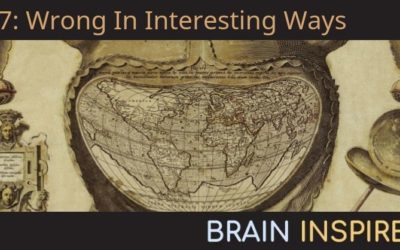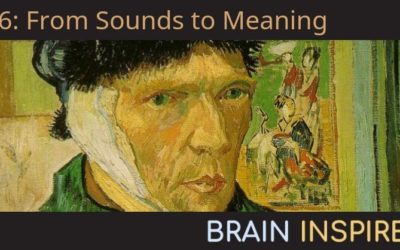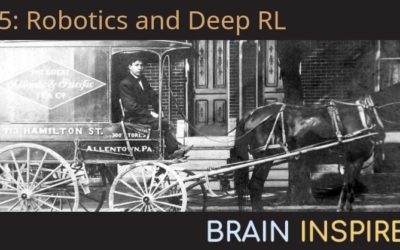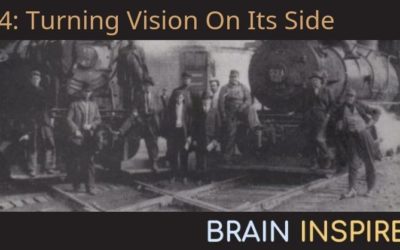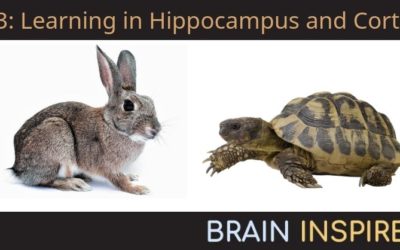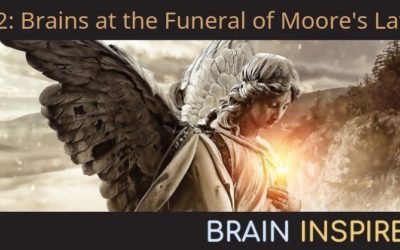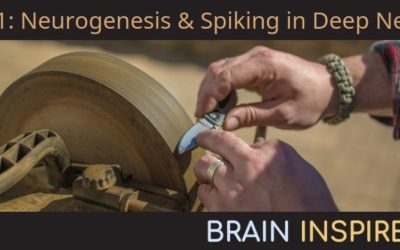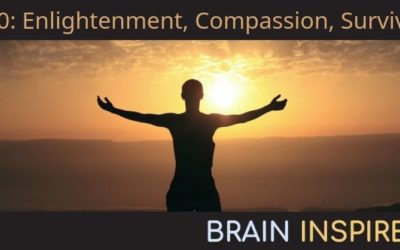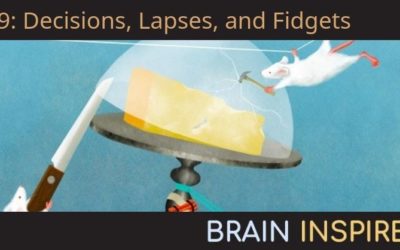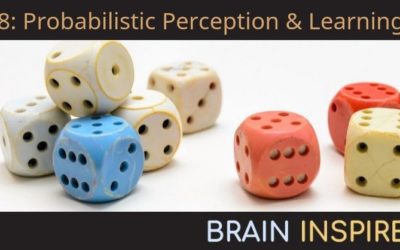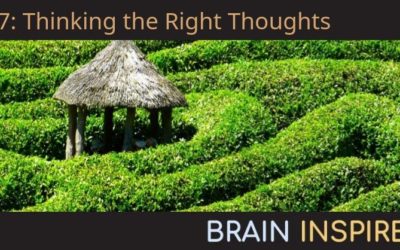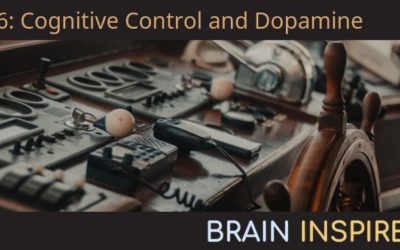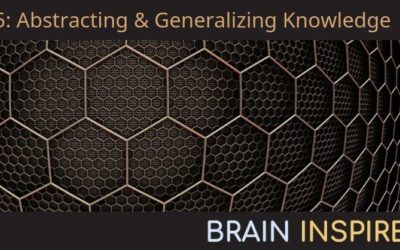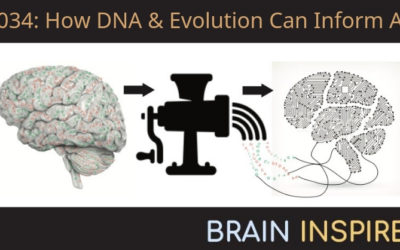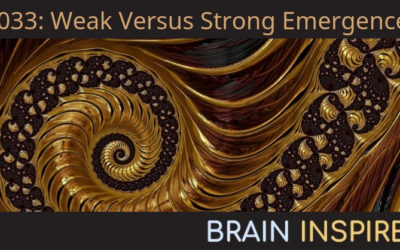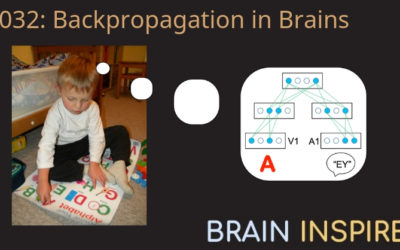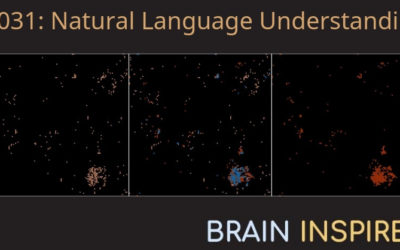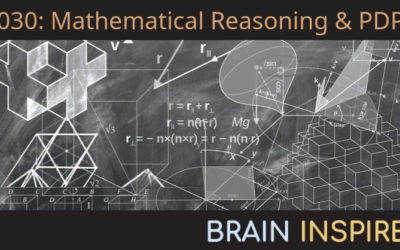All Episodes
BI 047 David Poeppel: Wrong in Interesting Ways
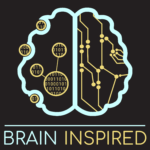
In this second part of our conversation, David and I discuss his thoughts about current language and speech techniques in AI, his thoughts about the prospects of artificial general intelligence, the challenge of mapping the parts of linguistics onto the parts of neuroscience, the state of graduate training, and more.
BI 046 David Poeppel: From Sounds to Meanings

David and I talk about his work to understand how sound waves floating in the air get transformed into meaningful concepts in your mind. He studies speech processing and production, language, music, and everything in between, approaching his work with steadfast principles to help frame what it means to understand something scientifically. We discuss many of the hurdles to understanding how our brains work and making real progress in science, plus a ton more.
BI 045 Raia Hadsell: Robotics and Deep RL

Raia and I discuss her work at DeepMind figuring out how to build robots using deep reinforcement learning to do things like navigate cities and generalize intelligent behaviors across different tasks. We also talk about challenges specific for embodied AI (robots), how much of it takes inspiration from neuroscience, and lots more.
BI 044 Talia Konkle: Turning Vision On Its Side

Talia and I discuss her work on how our visual system is organized topographically, and divides into three main categories: big inanimate things, small inanimate things, and animals. Her work is unique in that it focuses not on the classic hierarchical processing of vision (though she does that, too), but what kinds of things are represented along that hierarchy. She also uses deep networks to learn more about the visual system. We also talk about her keynote talk at the Cognitive Computational Neuroscience conference and plenty more.
BI 043 Anna Schapiro: Learning in Hippocampus and Cortex

How does knowledge in the world get into our brains and integrated with the rest of our knowledge and memories? Anna and I talk about the complementary learning systems framework introduced in 1995 that posits a fast episodic hippopcampal learning system and a slower statistical cortical learning system. We then discuss her work that advances and adds missing pieces to the CLS framework, and explores how sleep and sleep cycles contribute to the process. We also discuss how her work might contribute to AI systems by using multiple types of memory buffers, a little about being a woman in science, and how it’s going with her brand new lab.
BI 042 Brad Aimone: Brains at the Funeral of Moore’s Law

Brad and I discuss how Moore’s law is on its last legs and his ideas for how neuroscience – in particular neural algorithms – may help computing continue to scale in a post-Moore’s law world. We also discuss neuromporphics in general and more
BI 041 Brad Aimone: Neurogenesis and Spiking in Deep Nets

Brad and I discuss the state of neuromorphics and its relation to neuroscience and artificial intelligence. He describes his work adding new neurons to deep learning networks during training, called neurogenesis deep learning, inspired by how neurogenesis in the dentate gyrus of the hippocampus helps learn new things while keeping previous memories intact. We also talk about his method to transform deep learning networks into spiking neural networks so they can run on neuromorphic hardware, and the neuromorphics workshop he puts on every year, the Neuro Inspired Computational Elements (NICE) workshop.
BI 040 Nando de Freitas: Enlightenment, Compassion, Survival

Nando is a principal scientist at Deepmind and has an appointment at CIFAR, the Canadian Institute for Advanced Research. We talk about why he studies artificial intelligence, many of his current projects advancing machine learning in modern challenging areas like meta-learning, teaching machines how to program other machines, training networks using few training examples, and more.
BI 039 Anne Churchland: Decisions, Lapses, and Fidgets

Anne and I discuss her work elucidating how populations of neurons underly decision-making in mouse brains. We talk about how movement related activity dominates neural activity during decisions, how lapses may reflect exploration of options, a rubric for characterizing animal experiments, her Anne’s List repository to help all of us invite female systems neuroscientists to speak at conferences, and a lot more
BI 038 Máté Lengyel: Probabilistic Perception and Learning

Máté and I discuss his work on probabilistic internal models to understand perception and learning and their inherent uncertainty in our brains, bayesian theory, how his models relate to modern deep learning, and lots more.
BI 037 Nathaniel Daw: Thinking the Right Thoughts

Nathaniel and I discuss his work on model-based and model-free reinforcement learning, how replay in the hippocampus can help of conjure appropriate memories to plan actions, neuropsychiatric disorders, and more.
BI 036 Roshan Cools: Cognitive Control and Dopamine

Roshan and I discuss her work on the role of dopamine on our meta-control of cognition (cognitive control) in the basal ganglia and prefrontal cortex, the role of dopamine in reinforcement learning, how artificial intelligence might incorporate principles of neuromodulation to improve algorithms, being a woman in science, and much more.
BI 035 Tim Behrens: Abstracting & Generalizing Knowledge, & Human Replay

Tim and I talk about the upcoming Cognitive Computational Neuroscience conference, where he’ll be delivering a keynote address, conferences in general, his Tolman Eichenbaum machine that mimics neurons in the hippocampus and entorhinal cortex to abstract and generalize the structure of knowledge, his work using MEG to measure replay in humans, and more.
BI 034 Tony Zador: How DNA and Evolution Can Inform AI

Tony and I talk about his idea that AI should take inspiration from DNA. That is, DNA through evolution can be thought of as a compressed bottleneck of innate information for our brains to start with, unlike the tabula rasa deep learning systems in vogue these days. We also talk about his experiences starting the COSYNE conference, his work with auditory decision making in rodents, how he plans to revolutionize neuroscience using DNA barcodes to solve the connectome, and more.
BI 033 Federico Turkheimer: Weak Versus Strong Emergence

Federico and I discuss the difference between weak and strong emergence and how they relate to theories about brain function and consciousness, like the free energy principle, integrated information theory, and oscillatory mechanisms.
BI 032 Rafal Bogacz: Back-Propagation in Brains

Rafal and I discuss many of the ways back-propagation could be approximated in brains as detailed in his recent Trends in Cognitive Sciences review. We also cover how brains and machines learn, the free energy principle with its predictions and implications related to back-prop and understanding brains in general, and more.
BI 031 Francisco de Sousa Webber: Natural Language Understanding

Francisco and I discuss language and brains, his company cortical.io that uses his Semantic Folding Theory about how brains process language to perform natural language processing on text for many purposes, and the world of making and running companies like his own.
BI 030 Jay McClelland: Mathematical Reasoning and PDP

Jay and I discuss his rather ambitious project to implement mathematical reasoning in an AI agent. Plus his prominent role in and experience of the history of parallel distributed processing and neural network architectures taking over symbolic “good ol’ fashioned artificial intelligence” in the 1980s, and lots more.
